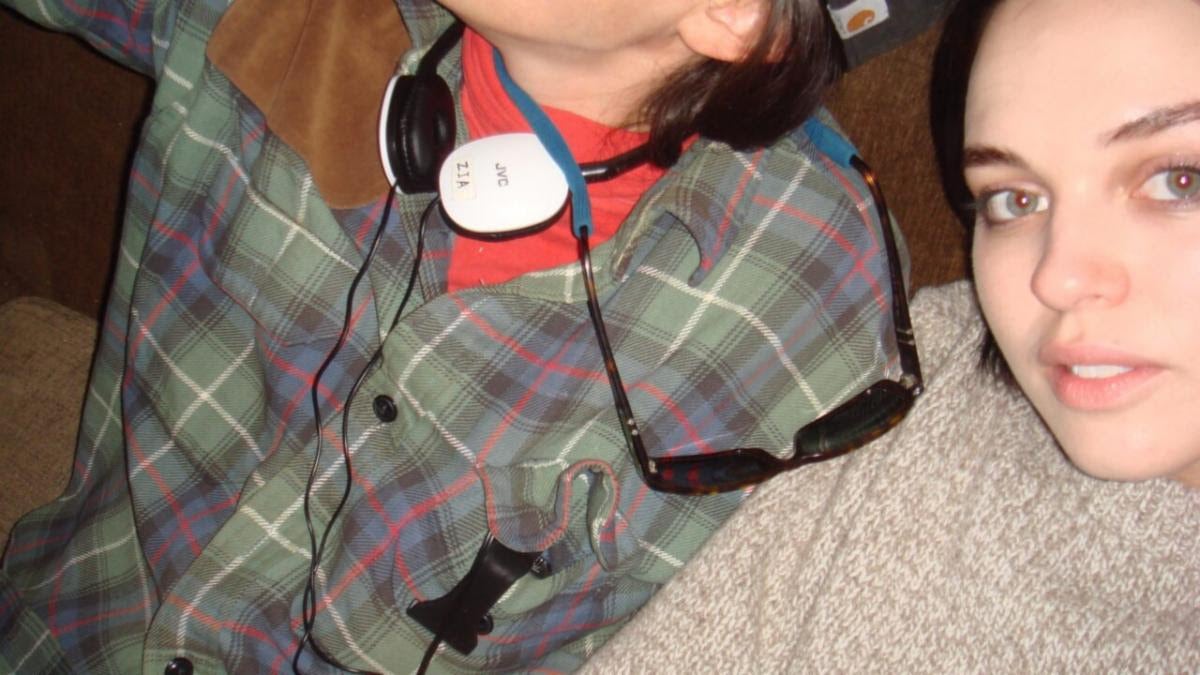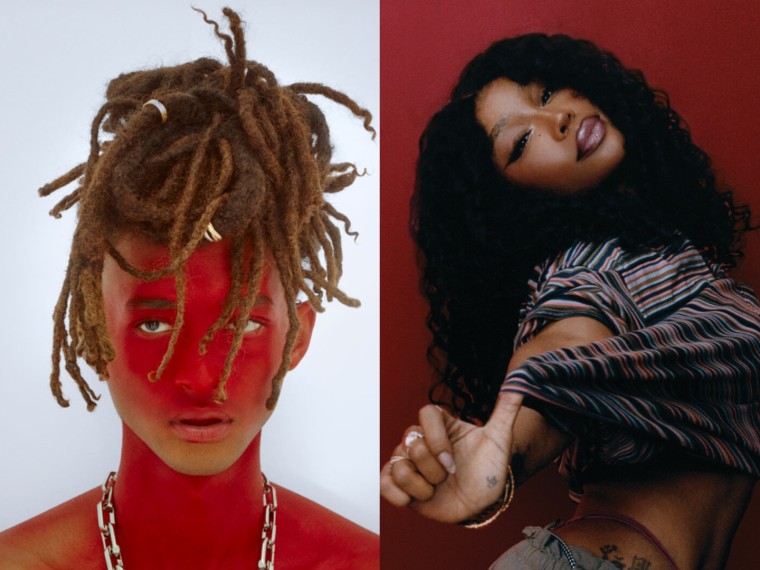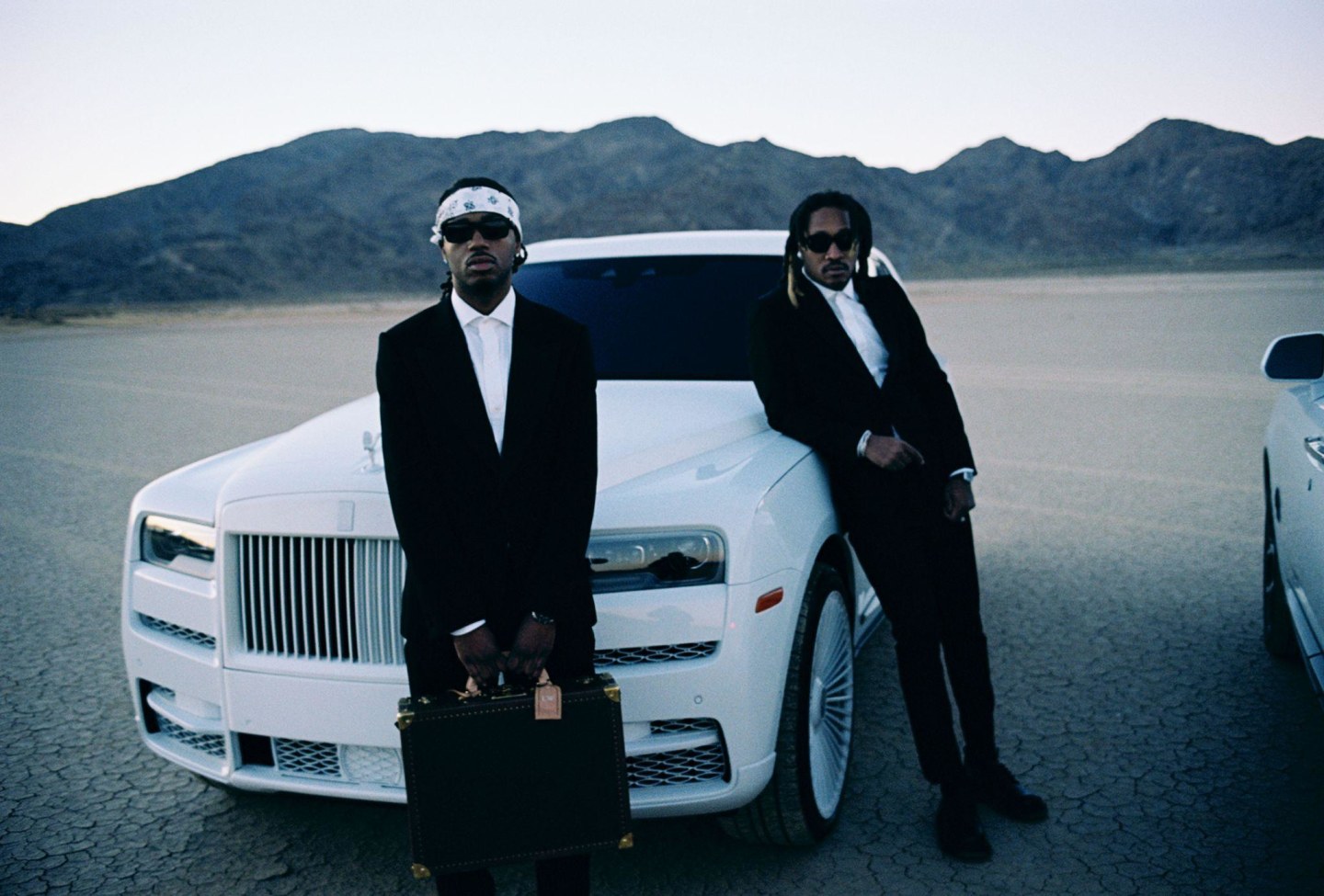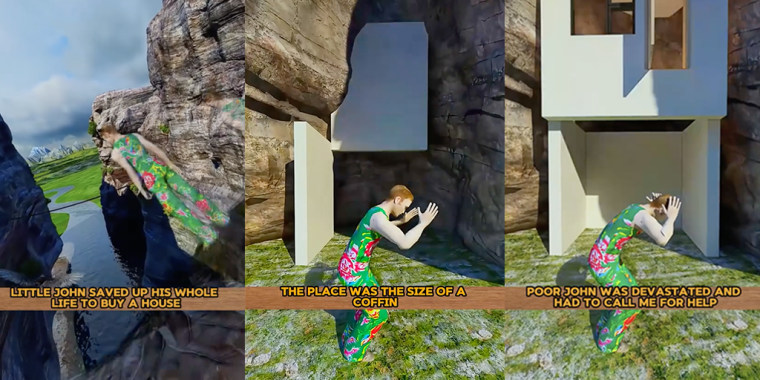It would be easy to classify Always All Ways, Anne Marie, director Zia Anger’s first directorial feature, as “abandoned,” just as IMDB does. But her new project My First Film, streaming on MUBI starting September 6, reveals how deeply our unrealized creative endeavors can live with us. Part autofiction drama and part diaristic examination of failure, My First Film is centrally a triumphant recovery of Always All Ways’ torrid development, and a reclamation of what an “unsuccessful” film truly looks like.
The creation of My First Film can be traced to nearly 15 years ago when filming on Always All Ways began. The micro-budget feature starred a young Angel Olsen as a woman searching for her mother; the finished film was submitted to nearly 50 festivals and rejected by all of them, never seeing an official release. Most would drop interest in something after that level of rejection, but Anger refused to let go.
In the years since, Anger was used Always All Ways as the impetus for a series of self-excavating and thought-provoking projects. In 2018 she staged a live presentation of her abandoned work in New York that included a screening of Always All Ways alongside her own thoughts and commentary, presented via TextEdit and typed live on the night. Anger subsequently took that live show on the road across North America and online when the COVID-19 pandemic hit, once again raking over the coals of her past as the future was more uncertain than ever.
Now Anger, who has made music videos for Mitski and Beach House as well as touring with Jenny Hval, has pushed her experience creating Always All Ways to its natural and fully realized endpoint with My First Film. The narrative is told predominantly through a straightforward realist drama that follows Vita (played by Odessa Young), a first-time filmmaker and an avatar for Anger — Devon Ross plays Dina, the actress starring as director in Vita’s film. Vita has pulled together a ragtag crew of often stoned friends and a crowdfunded pot of money to make her movie happen. She is young and idealistic, but a little reckless, too, hiding both an Adderall addiction and an unwanted pregnancy while also trying to wrestle control of a production that pushes her managerial and creative abilities to their limit. The shoot goes badly, with problems ranging from petty fights to a drunken car crash.
Anger layers this autobiographical origin story with moments of reality, including fourth-wall-breaking shots of herself taken from her own Instagram Stories and clips from the 1943 experimental silent short film Meshes of the Afternoon. Perfume Genius provides the score, filling the spaces inbetween Anger’s story with an impressionistic and ethereal soundscape. This cinematic collage, part coming-of-age drama and part confessional essay, is a true cinematic ouroboros. In a time when venerable male directors have used origin stories to show what made them filmmakers (Roma, The Fabelmans, Belfast) and women have mined their adolescence for painful life lessons (Lady Bird, After Sun) Anger has managed to pull off both at the same time. It’s hard to watch and not admire both her commitment and chutzpah.
Speaking to The FADER prior to the movie’s launch, Anger told The FADER about looking for honesty in her work, collaborating with Perfume Genius on the sound of the film, and the limits of realism when making a biographical story.
My First Film is a triumphant self-portrait fueled by failure”>
My First Film
MUBI
The FADER: Late on in My First Film, one of the crew members mentions to Vita that many directors fail at their first attempt, but they just don’t talk about it. What makes you want to keep returning to your early experience when it would be easier to just move on?
Zia Anger: It began as a story I would tell when I got really drunk. Me and my friends who made it, would put [Always All Ways, Anne Marie] on and look at it and just reminisce. Then I was invited to do a presentation of my lost and abandoned work in 2018 and I did the same thing but I typed the story out. There were only 15 people in the audience, but realized that there was something there. When I told the story I cried and the audience laughed. People told me that it meant a lot to them and that they had an unfinished book manuscript under their bed or an album they never finished recording. I was surrounded by failure and it’s happening to people all the time. It’s just that talking about it isn’t something we do. I have so many things in my life that are considered failures and for me, it was about diving deep and finding the beauty and the poetry rather than focusing on the shame.
It feels like you are reclaiming something other people could define for you…
Absolutely. It is the best thing that has ever happened to me, or certainly the best story that I have to tell. It’s an exercise in storytelling and performance. We’re all performing in our daily lives in the capitalist world and I wanted to perform the role of writer and director. So much of it has been me challenging myself to fall in love with making films again after what happened the first time. The hope was to look at myself in the most honest way, both as hateful and incredibly loving, and look at the nuances; then, it would allow people watching the film to reflect on their own lives, too.
Can you explain the decision to insert yourself into the film?
It did begin with me thinking I would make a straight narrative recreation. Then as we [Anger and co-writer Billy Feldman] were writing the movie it became clear that time was going to catch up with itself I had to appear in the movie. I was working with this amazing editor Joe Bini, who has made films with Andrea Arnold and Werner Herzog. He encouraged me to use anything that I had in terms of source material. He saw my Instagram Stories and said, “We should start with those.” He felt they gave a good sense of who was telling the story. If I was going to be as sincere and honest as I wanted to be, then I had to be in it.
Why did you want to work with Perfume Genius and what direction did you give him as to how you wanted the film to sound?
Mike [Hadreas, Perfume Genius] is an old friend. I used to tour with Jenny Hval and we opened for Perfume Genius in 2015. I was taken with him from the very beginning. His music and attitude spoke to this deep part of me that wanted to be as sincere and funny as he is. I immediately thought of him when I was thinking of who would score the film.
The conversations that we had were very vague at first. We connected over the script but it wasn’t until he watched the rough cut and he described it as “deranged” that things really started moving. He started sending me music that he thought would work in the film and it became a back-and-forth where we would make new cuts with his music, and he would then tweak that to be closer to what he wanted. It was all very intuitive. So much of the film is about what is happening internally and how you see yourself and what we ended up with is a score that is almost bodily. It lives between the bones and muscles of the film. It’s in your groin and in your butt. It captures the tragedy and comedy of the whole thing [while] being very sensorial, unlike a traditional score.
It can sometimes feel like audiences are not very open to the use of artistic license in biographical movies — things often get criticized for not being depicted exactly how they happened in reality. Was that something you considered when you were working on your film and deciding how much of the truth you showed? Is artistic license underappreciated?
I take a lot of inspiration from other art forms that are more interpretive. Music, for example, people listen to a pop song and think it’s about them. There is an openness to music where you can feel yourself in the narrative of a movie. Abstract art and novels are the same. When I made My First Film I was hoping to find that openness and letting the truth be very slippery, not always truthful would allow things to be porous and become an entry point for the audience. In general, I think realism is very boring.
The film paints a bleak image of the movie industry, particularly the ways in which female directors are marginalized by studios and financiers. What do you want to see change in the future and what would be your advice to a young DIY director looking to make their first film?
I could speak for five hours about this but I won’t. On the industry side, I would love to see things become less risk-averse. There is not a lot of experimentation with different types of films and release plans. The safest way forward is to do things as they have been done before but people’s stories are so beyond safe. It would be great for the industry to start experimenting with different stories that don’t follow traditional models. I don’t know that this will actually happen though. The film industry will likely die before it changes.
In terms of filmmakers, specifically women or anyone who doesn’t feel like they have a place, I would say just take your time. Life experience is incredibly important to making a film. I am so proud of the film I made and would never take the experience back but also I would not wish the 15 years I have spent between these two films on anybody. There is a moment towards the end of the film where a voiceover says that Vita is going to make another film and that she’ll do it with people that she loves and it says very specifically that she will stop losing sleep. If you’re losing as much sleep as I have done in my life, then see if there are other things out in the world that you want to do. If you’re still thinking about making a film, then you can go back to it. It’s a difficult thing to get into and I am very lucky that I got to make this film. I won’t sugarcoat it: this doesn’t work out for a lot of people. It’s not a case of just working hard. You have to be a crazy person, like I am.




